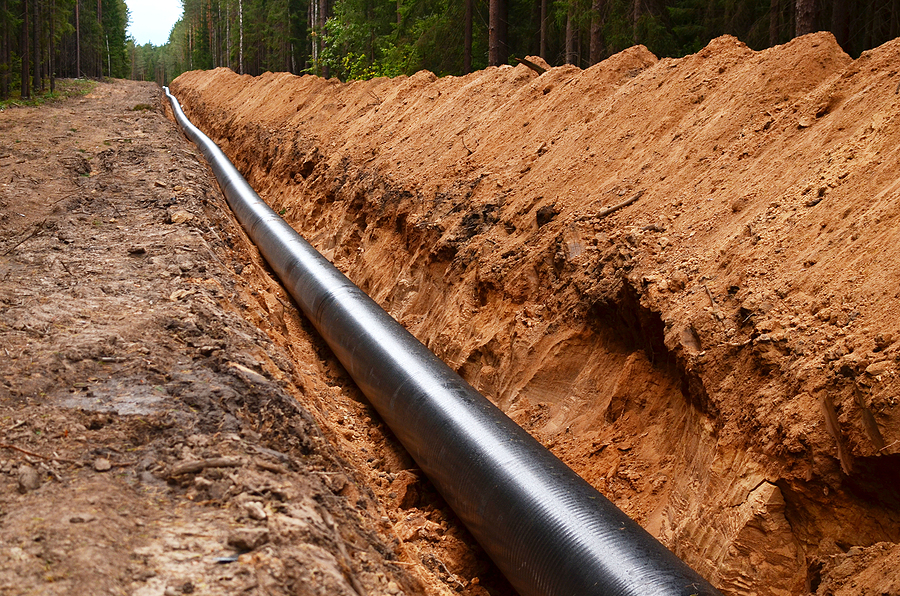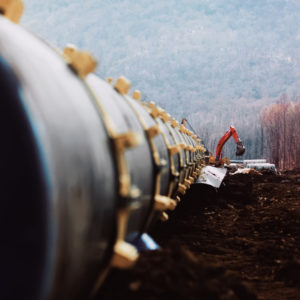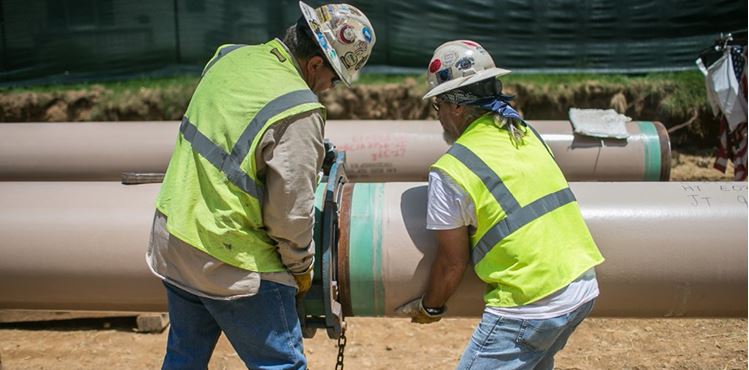Feds’ New Focus on Pipeline Safety Raises Concerns of Overregulation

When it comes to moving fossil fuels as safely as possible from where they are produced to where they are needed, the data is clear that pipelines are the best choice, particularly over long distances.
“As long as we’ve made the choice to use natural gas, oil — name your fossil fuel resource — the only practical and safe way to move it at scale is to move it through pipelines,” said Keith Coyle, a D.C.-based attorney who advises clients throughout the United States on energy matters.
But the National Transportation Safety Board believes more can be done, in particular, to protect people and property from pipeline explosions. At issue is the potential impact radius (PIR) for a pipeline. While explosions are rare when compared to the millions of miles of active pipelines in the U.S., they do happen.
An analysis highlighted by E&E News looked at 17 pipeline explosions between 2017 and 2022. One such case was in 2019 when an explosion in Kentucky killed a woman in a nearby mobile home approximately 640 feet from the blast.
In 2000, 12 family members died in New Mexico after a pipeline ruptured and caused a blast 675 feet from where they were camping. The federal government considers 600 feet to be a safe distance, and now officials want regulators to update their calculations.
“Pipeline operators must know and understand their pipeline systems and use appropriate technologies and procedures to address risk to prevent pipeline failures while considering the inherent limitations of technology,” wrote Tristan H. Brown, Deputy Administrator of the Pipeline and Hazardous Materials Safety Administration (PHMSA) at Department of Transportation in a November 2022 letter. “PHMSA prescribes factors that must be addressed to mitigate risk and conducts inspections to ensure adequate measures are carried out effectively.”
That includes potentially recalculating the formula for an acceptable PIR.
But energy insiders note that, however necessary this update may be, the Biden administration has been openly hostile to the fossil fuel industry from the outset. There is concern that the legitimate debate about re-calculating the PIR might be used to make siting more difficult for future fossil-fuel infrastructure projects. Siting is already one of the most challenging aspects of expanding pipeline capacity.
“If regulators are looking at this from an analytical perspective, and what is the actual risk, that’s OK,” said Coyle. “But if they’re using it to push an agenda, to make pipelines appear less safe than they actually are, well — look, when you actually look at the data, by any measure, this is the safest choice. In terms of injuries, fatalities, the amount of product moved, etc.”
No system is entirely without risk, of course, but the American Fuel and Petrochemical Manufacturers (AFPM) says consumers need to understand that pipelines are safe and “accidents are rare.”
“According to the most recent numbers available, 99.99 percent of gas and crude oil is moved safely through interstate transmission pipelines,” says AFPM. “This achievement is the result of a culture that values safety above all, throughout the pipeline lifecycle,” which they say includes “pipeline operators constantly monitoring pipeline performance using state-of-the-art technology.”
But an administration that began with President Joe Biden killing a major pipeline project — the Keystone XL — and a plunge in energy leases has supporters of fossil fuel production wary about regulatory changes.
If you ask Dan Kish at the Institute for Energy Research (IER), onerous government regulations are precisely the reason people are now pushing for new calculations on the “safe distance” from pipelines.
“The goal is to make it so expensive or so impossible to use any of the U.S.’s world-class energy resources that Americans are forced to use renewable energy technology, which unfortunately only works part-time and is largely dependent upon Chinese production,” says Kish.
Still, news outlets such as Politico note energy industry groups have often been the ones to dictate policy. Pointing to a 2015 Politico investigation, Politico’s Arianna Skibell wrote that PHMSA “lacked the resources to inspect the country’s millions of miles of oil and gas lines, and that it had granted the industry it regulates significant power to influence the rulemaking process.”
“In the last decade, more than 2,600 pipeline leaks killed 122 people across the country, causing more than $4 million in damage and releasing 26.6 billion cubic feet of planet-warming pollution,” wrote Skibell, citing a 2022 study by U.S. PIRG Education Fund.
Once again, Coyle notes, what is the alternative? Rail and trucks have their own safety risks, and shipping is limited both by geography and the Jones Act, which makes moving oil and gas between U.S. ports nearly impossible.
And Kish sees political opportunism at work.
“One week it’s banning gas stoves, the next it’s a proposal that would make it impossible to build and operate pipelines.”
EDITOR’S NOTE: A previous version of this article misidentified the NTSB as the federal agency that regulates pipelines. We regret the error.
Please follow DVJournal on social media: Twitter@DVJournal or Facebook.com/DelawareValleyJournal








